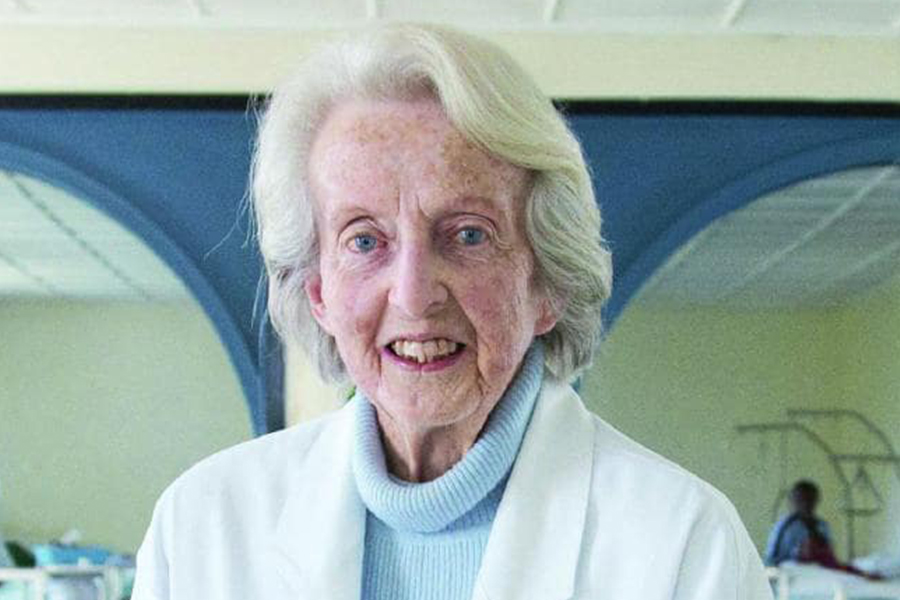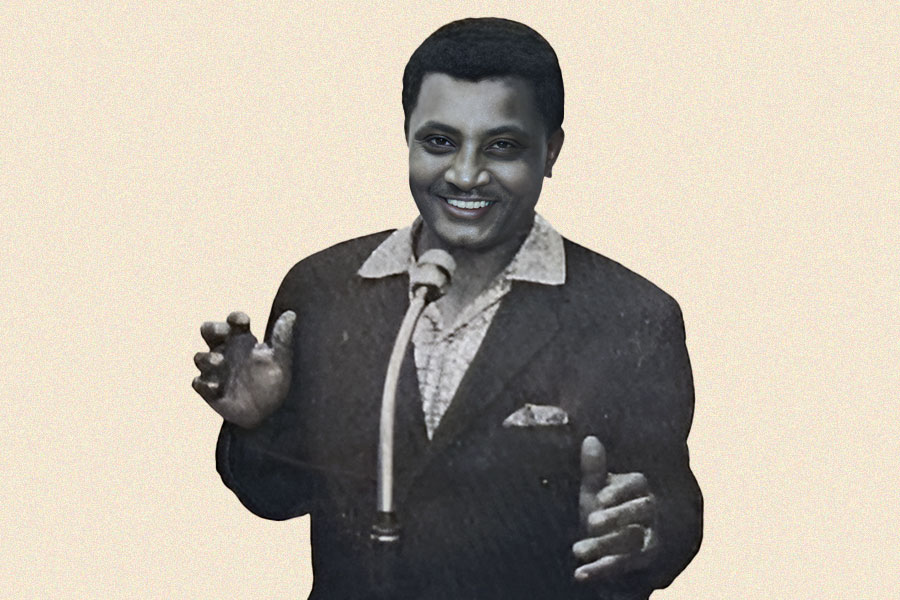
Life Matters | Oct 24,2020
Nov 7 , 2020
By Desalegn Tegabu
The Ethiopian New Year has seen the passing of several prominent individuals. There was Mesfin Woldemariam (Prof.), renowned scholar and human right activist; Mohammed Idris, a journalist and health activist known for his activism against polio; Sultan Hanfareh Ali Mirah, renowned nationalist and spiritual chief; and Lemma Guya, the celebrated goatskin painter. This is not to mention the health professionals we lost as they were selflessly and tirelessly fighting the Novel Coronavirus (COVID-19) pandemic.
But not all has been bleak. Several Ethiopians or individuals who made contributions to Ethiopia have won national and international recognition for their extraordinary contributions. Ahmed Shide, minister of Finance, received the 2020 African Finance Minister of the Year award; Mohammed Al Arusi and Yacob Arsano (PhD) received the Bego Sew Award for their work in vocally defending Ethiopia’s interests in the Grand Ethiopian Renaissance Dam (GERD) negotiations; and Gail Davey, former professor at the Addis Abeba University, received an award for her significant work on neglected tropical diseases in Ethiopia. Though well overdue, a school was named after the late Mamo Wedneh, playwright and journalist.
We recognise individuals as heroes for their tireless work and the contributions for the betterment of our circumstances. They sacrifice blood, sweat and tears, often in defence of our values and our pride as a nation. Their commitment, dedication, courage and hard work need to be recognised and honoured in a systematic, unbiased and participatory way. We should not allow our heroes to go unheralded, lest we are unable to inspire the next generation to strive for what is right and exceptional.
Though there is no dearth of pride in our heroes, the culture of revealing and articulating their import is due for a major overhaul. We should track and recognise our heroes and cease honouring them after they have already been granted acknowledgement elsewhere. We need to reconsider and strengthen our culture of honouring heroes in the workplace and the community.
Though we have several heroes to be remembered and acknowledged, several units, facilities and programmes in public organisations are identified by generic names or numbers. Our universities and health facilities are not spared from this sullying act. Getting lost in a university campus looking for Gate 6 or Hall 12 or some unnamed garden is common.
This is a phenomenon that is persisting as colleges and universities expand. Various auditoriums, gymnasiums, libraries, gardens, academic and service wings, cafeterias and even programmes are merely numbered or given generic names.
This is while these structures can be named to honour outstanding scholarly or professional contributions at national or international levels in the individual's field. Individuals' exceptional contributions in administrative capacity also warrant honour – for instance, naming programmes or buildings after former ministers, judges, presidents, CEOs and deans.
The naming can also be of geographical landmarks, historical events, and of those that have made extraordinary contributions in cash or in kind. This is a neglected but innovative resource mobilisation strategy to meet an organisation's goal.
Sustainable and acceptable honouring should not be a reactive act. Due attention should be given by the government and institutions in setting standard procedures and institutional arrangements for honouring. Nomination for who gets the honour should be open, and the selection committee should be multidisciplinary and comprehensive.
Just as importantly, in granting honours, strict care should be taken to adhere to an established regulation while consent must be obtained from the immediate family in case the individual has passed away. To ensure the transparency and fairness to these policies and procedures, concerned bodies should be communicated using formal channels.
Honouring should be proactive, not reactive, participatory rather than prescribed, rule-based rather than leaning on favouritism. If this can be realised, honours will be effective in ensuring that individuals' attention is called to not just the individuals but the work they have done and the legacy they have left. It will also play an important role in the donor community by motivating them to give and in educating the public on the important role philanthropy plays in supporting national endeavours.
Nurturing the spirit of our heroes will help us reflect upon our past and contribute toward a better tomorrow. We should not pass up the opportunity to use our public spaces and buildings to this end.
PUBLISHED ON
Nov 07,2020 [ VOL
21 , NO
1071]


Life Matters | Oct 24,2020

Obituary | Mar 28,2020

Viewpoints | Jul 13,2020

My Opinion | Jun 08,2024

Editorial | Jun 26,2021

Radar | Oct 05,2019

View From Arada | Jun 03,2023

Radar | Sep 26,2021

Fortune News | Dec 05,2018

Radar | Apr 22,2022

My Opinion | 131772 Views | Aug 14,2021

My Opinion | 128157 Views | Aug 21,2021

My Opinion | 126102 Views | Sep 10,2021

My Opinion | 123723 Views | Aug 07,2021

Dec 22 , 2024 . By TIZITA SHEWAFERAW
Charged with transforming colossal state-owned enterprises into modern and competitiv...

Aug 18 , 2024 . By AKSAH ITALO
Although predictable Yonas Zerihun's job in the ride-hailing service is not immune to...

Jul 28 , 2024 . By TIZITA SHEWAFERAW
Unhabitual, perhaps too many, Samuel Gebreyohannes, 38, used to occasionally enjoy a couple of beers at breakfast. However, he recently swit...

Jul 13 , 2024 . By AKSAH ITALO
Investors who rely on tractors, trucks, and field vehicles for commuting, transporting commodities, and f...

Jul 5 , 2025
Six years ago, Ethiopia was the darling of international liberal commentators. A year...

Jun 28 , 2025
Meseret Damtie, the assertive auditor general, has never been shy about naming names...

Jun 21 , 2025
A well-worn adage says, “Budget is not destiny, but it is direction.” Examining t...

Jun 14 , 2025
Yet again, the Horn of Africa is bracing for trouble. A region already frayed by wars...

Jul 6 , 2025 . By BEZAWIT HULUAGER
The federal legislature gave Prime Minister Abiy Ahmed (PhD) what he wanted: a 1.9 tr...

Jul 6 , 2025 . By YITBAREK GETACHEW
In a city rising skyward at breakneck speed, a reckoning has arrived. Authorities in...

Jul 6 , 2025 . By NAHOM AYELE
A landmark directive from the Ministry of Finance signals a paradigm shift in the cou...

Jul 6 , 2025 . By NAHOM AYELE
Awash Bank has announced plans to establish a dedicated investment banking subsidiary...